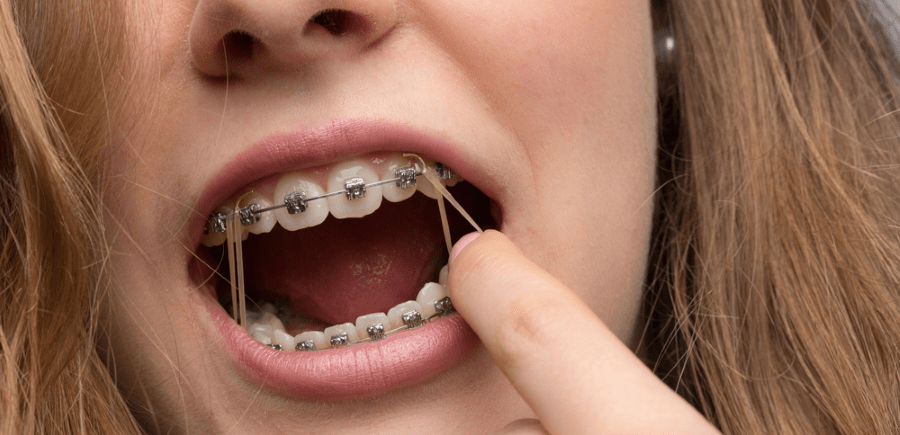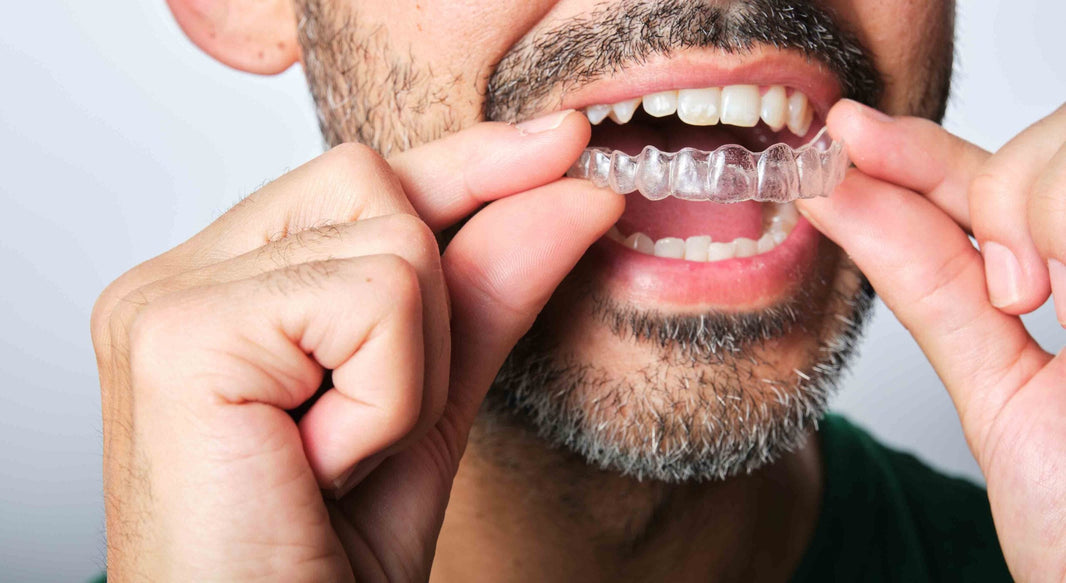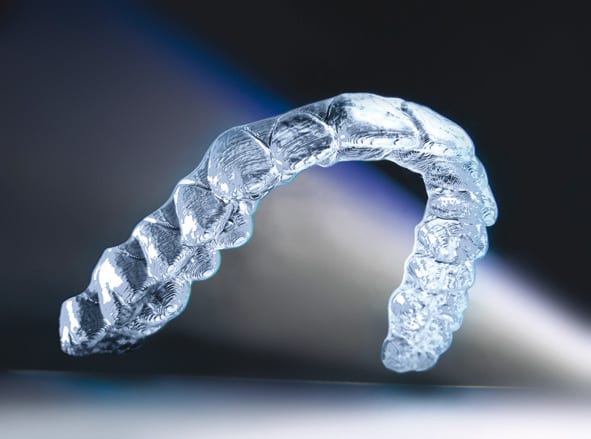An elastic might seem like a small part of your braces, but when one breaks, comes loose, or goes missing, it can interfere with your treatment more than you think. Whether the elastic slipped off, snapped during wear, or was accidentally discarded, it’s important to know what steps to take. Acting quickly can help you avoid delays, discomfort, or bite issues down the line.
Table of contents
Elastic Band Issues with Braces
Rubber bands or Elastics are a critical part of many orthodontic treatments, helping guide your bite into proper alignment. Whether you’re wearing tiny colored ligatures around each bracket or the larger interarch rubber bands that stretch from top to bottom, losing one can feel confusing—and even a little alarming. The good news? A lost rubber band usually isn’t a dental emergency, but it does require attention.
Why Braces Use Rubber Elastic Bands
Braces rely on gentle dental, continuous pressure to move your teeth—and rubber bands help apply that pressure in specific directions. There are two types of rubber bands used during treatment. Ligatures are small elastic rings that hold the archwire to each bracket, while interarch elastics connect hooks between the top and bottom teeth to guide jaw alignment.
Losing an elastic band can temporarily disrupt this pressure system. If a ligature falls off, the archwire may become loose or shift. If an interarch elastic goes missing, you may lose crucial jaw guidance until it's replaced. While not painful, missing rubber bands can slow down or misalign your progress if not corrected.
Ligatures hold the archwire in place on brackets
Interarch elastics help move the jaw and adjust bite
Missing elastics can interfere with tooth or jaw alignment
Treatment may be prolonged if bands aren’t replaced promptly

When to Call Your Orthodontist
A single lost rubber band may not seem urgent but leaving it off for too long can interfere with the treatment your orthodontist carefully planned. It’s always best to report the issue so they can determine if you need a replacement right away—or if it can wait until your next visit.
Call your orthodontist if you lose an elastic and:
You’re unsure whether it was a ligature or interarch band
You’ve run out of replacement bands at home
A bracket feels loose or exposed after the loss
Your bite begins to feel uneven or painful
If Braces Elastics Come Off or Loosen
If a rubber band pops out of place, the steps you take at home can make a big difference. Keeping calm and identifying which type of rubber band you lost is the first step. If it’s an interarch elastic and you have extras on hand, you may be able to replace it yourself. If it’s a ligature, you’ll likely need to contact your orthodontist.
Follow the tips below to temporarily manage the situation until your next orthodontist appointment—or until you can get guidance from your provider.
Interarch Elastic Came Off
Interarch rubber bands stretch from a hook on your upper bracket to one on your lower. They’re often worn in specific patterns and must be replaced regularly. If one comes off, it should be replaced as soon as possible to maintain bite correction.
What to do:
Wash your hands and locate your replacement bands
Refer to your original instructions or diagram to replace the elastic in the correct position
If you’re unsure about placement, avoid guessing—call your orthodontist
Continue wearing the rest of your elastics as directed
Ligature Elastic (Small Band Around Bracket) Came Off
Ligatures are the tiny colored bands around each bracket that hold the arch wire in place. If one falls off, the wire might loosen or shift position. While this may not be painful, it can affect alignment and may require repair.
What to do:
Do not attempt to replace the ligature yourself
Use wax for braces if the exposed wire causes irritation
Avoid hard or sticky foods that could dislodge more bands
Call your orthodontist to schedule a quick repair
You’re Out of Replacement Elastics
If you're wearing interarch elastics and run out, it’s important to avoid skipping usage for long. Missing even a day or two of prescribed elastic wear can delay bite correction and disrupt your dental treatment plan.
What to do:
Call your orthodontist and ask if you can pick up a new supply
Some offices may be able to mail replacements or offer curbside pickup
In the meantime, avoid foods that place strain on your bite or jaw
How to Prevent Elastics from Getting Lost
Elastic bands can snap or go missing for many reasons, especially early in treatment for braces as you’re getting used to wearing them.
Simple steps—like replacing them at the same time each day, avoiding sticky foods, and keeping a backup pack with you—can help minimize the chances of losing one unexpectedly.
Being proactive with your routine will help keep your treatment on schedule and reduce the need for emergency visits.

Replace interarch elastics as instructed (usually 3–4 times per day)
Carry extra elastics with you at school, work, or while traveling
Avoid foods that pull or snag on elastics (like taffy or gum)
Inform your orthodontist if bands are breaking frequently
Final Note: Dental Hygiene Is Critical
Whether you’ve lost an elastic or had one snap mid-meal, maintaining good dental hygiene remains essential. A missing ligature or displaced arch wire can trap food more easily, and poor cleaning habits may cause irritation or plaque buildup around exposed brackets.
Brush gently around brackets and wires, especially if a rubber band is missing. Use a soft-bristled toothbrush and consider adding a fluoride rinse to help protect your enamel during treatment.
Rinse and brush after meals
Keep brackets and wires clean
Attend all scheduled appointments
Is it okay to go without an elastic on my braces for a day or two?
Not ideal. Interarch elastics should be worn as prescribed to keep consistent pressure on your bite. Missing even a day can slow progress or cause your bite to shift slightly. Call your orthodontist if you're out of bands or unsure what to do.
What happens if I lose a ligature (the small colored band on a bracket)?
If a ligature comes off, the archwire can loosen or shift out of place. You shouldn't try to fix this yourself. Use orthodontic wax if it’s causing discomfort, and book a quick repair visit to prevent treatment delays.
Can I use a regular rubber band if I run out of elastics?
No. Orthodontic elastics are made with specific tension levels designed for tooth and jaw movement. Household rubber bands can cause damage or ineffective pressure. Always use the bands provided by your orthodontist.
Why do rubber bands snap or fall off so easily?
Elastics can wear out, especially if exposed to chewing, talking, or jaw movement throughout the day. Sticky or crunchy foods can also weaken or dislodge them. Regular replacement (usually multiple times a day) helps prevent breakage and keeps treatment moving forward.
Time to Book a Dental Emergency?
Lost a ligature or ran out of interarch elastics? While not an emergency, it’s important to book an orthodontic appointment as soon as possible. If you’re experiencing ongoing discomfort or can’t resolve the issue at home, you’ll likely need to schedule an emergency orthodontic visit.
This type of appointment is separate from your regular adjustment and is meant to address urgent concerns like exposed wires, loose brackets, or hardware that’s causing pain or interfering with your daily activities.
Waiting until your next scheduled visit may prolong discomfort or lead to complications in your treatment progress. Your orthodontist can quickly assess the situation and get you back on track with minimal disruption.






